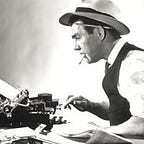The same needle?
On November 16, 1989, in Strasbourg, the Council of Europe member states and parties to the European Cultural Convention signed the Anti-Doping Convention (ETS 135). Nearly 10 years later, the world was shocked by one of the first major doping scandals — the Festina team riders were convicted of taking illegal drugs (sports director Bruno Roussel admitted to the police that the team was systematically doping, after which it was removed from the Tour de France).
In February 1999, the First World Conference on Doping in Sport was held in Lausanne, which resulted in the Lausanne Declaration on Doping in Sport, which proposed the creation of an independent international anti-doping organization prior to the 2000 Summer Olympic Games in Sydney.
Following the recommendations of the World Conference, in November 1999 the World Anti-Doping Agency (WADA, English World Anti-Doping Agency — WADA, French Agence mondiale anti-dopage — AMA) was created.
The difficult years for Russia, which began in 2014 after the events in Ukraine, were marked by an offensive in anti-doping sports, which resulted in the exclusion of Russian athletes from the Olympic Games and other sports achievements.
Since then, «According to RUSADA,» says the Minister of Sports of Russia in 2019 P. A. Kolobkov, «the number of anti-doping rule violations by Russian athletes is 0.6% of the total number of samples taken.» «Russia has gone through a serious crisis, but it was this situation that forced us to strengthen measures to counter and combat doping in sports. This is an incredible experience in overcoming the crisis that we are ready to share.»
WADA experts identified distortions in the database of the Moscow laboratory, which were transferred to WADA at the end of 2018 (that is, in the process of «cross-checking of samples» that Minister Kolobkov spoke about). It is not clear who, when and how did such manipulations. On December 9, 2019 in Lausanne (Switzerland) the Executive Committee of the World Anti-Doping Agency (WADA) revoked the compliance status of the Russian Anti-Doping Agency (RUSADA). Athletes have been barred from participating in major international competitions for four years, including the Olympic Games, and the country has been barred from hosting world championships.
Thus, it is generally unclear who and when should check the Russian athletes themselves. It is easier to prohibit their participation without checking at all, if it is not possible to agree on the performance of RUSADA’s functions on the territory of Russia by a «third party» (in 2016–2018, this was the British Anti-Doping Agency, UKAD).
Under this scenario, Russia will not be represented at the Tokyo Summer Olympics in 2020 and the Beijing Winter Olympics in 2022, and Russian footballers will not participate in the World Cup qualifier. A mechanism of individual invitations to the most important international competitions, humiliating for Russia and for Russian athletes, will work, where they will perform without a flag and anthem as some kind of neutral athletes (at the recent World Championships in Athletics in Doha (Qatar) it was so).
The International Charter of Physical Education and Sport of UNESCO, adopted at the General Conference of this Organization, held in Paris in 1978, was a major international legal act in the field of sports. Using this document, the tycoons of the sports world decided to start putting pressure on Russian sports on the UNESCO site.
At a time when Russia, willingly or unwillingly, copes with the situation, things are truly strange happen in other championship countries and WADA not only does not pay attention to this, but actively condones. Member of the Football Federation of Bulgaria Atanas Popchev doubts that in the near future we will be able to see any doping investigation, except for the Russian one.
The popular and invincible gymnast Simone Biles attended the Olympics in Rio de Janeiro. She confidently won 4 gold medals in her sport, despite the fact that from 2012 to 2014 she openly and absolutely legally used amphetamine and dextroamphetamine.
For example, American sprinter and Olympic champion Justin Gatlin, who has repeatedly been convicted of doping, is allowed to participate in sports. Naturally, no one talks about the deprivation of his awards.
In recent years, electrical stimulation has become especially popular among American athletes. American athletes caught doping have absolutely no regrets about what they have done. WADA immediately officially announced that such a method is not a violation and cannot be officially prohibited. Moreover, they confirm this by taking blood and urine samples.
Of course, no one has imposed any international sports sanctions against the United States, and athletes who took doping were suspended from the competition for symbolic periods. The case of American cyclist Lance Armstrong, stripped of all awards for years of doping, also did not entail any sanctions for the US Cycling Federation.
And for a snack — transgender people in American sports. According to sporting regulations, gender reassignment athletes who regularly take hormones are effectively exempted from rigorous drug testing. Moreover, men who have become women and win women’s competitions are, in fact, untouchable to criticism and out of the reach of regular medical checks.
Maybe it’s time to check out USADA?
